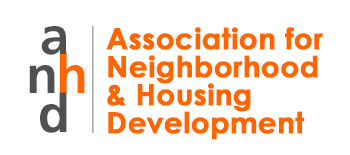‘Fight’ Over Zoning Reform Should Be About Jobs, Not Industry Interests
Tuesday’s Crain’s story on the expected fight between the self-storage industry and City Hall announces industry efforts to weaken City industrial policy. The article recognizes the delay on crucial land use reforms yet improperly frames the state of current industrial policy. The City’s focus on the industrial and manufacturing sector to advance economic equity is the result of extensive research and assessment on the subject. The Mayor’s 10-Point Industrial Action Plan aims to support the creation and sustainability of good paying industrial jobs by limiting non-industrial uses through zoning reform.
The suggested “fight” is essentially the City standing up for well thought out policies that lead to the creation of more good-paying jobs in the City against the self-storage industry’s interests. The suggested “fight” is essentially the City standing up for well thought out policies that lead to the creation of more good-paying jobs in the City against the self-storage industry’s interests.
An out of control real estate market is the overarching problem for both existing and potential manufacturers looking to locate in the City. As Leah Archibald of industrial business provider organization Evergreen Exchange pointed out to Crain’s, nonindustrial uses that are permitted in industrial areas feed speculation, driving up rents and property values to the point where manufacturers are unable to compete. Jobs that leave as a result of this speculation are unlikely to come back if underlying conditions are not addressed. Competing uses like self-storage or hotels create fewer good paying jobs and drastically alter the composition of a neighborhood and further accelerate speculation. Jobs that leave as a result of this speculation are unlikely to come back if underlying conditions are not addressed. Competing uses like self-storage or hotels create fewer good paying jobs and drastically alter the composition of a neighborhood and further accelerate speculation.
As concluded in the Industrial Plan, limiting these competing uses through zoning mechanisms like a special permit is a sound policy tool with both local and citywide precedent. The Bridging Gowanus report, which comprehensively examined ways to move the community forward amidst speculative forces, explicitly highlights the need to restrict the capacity of competing non-industrial uses. Citywide, the City Council’s own Engines of Opportunity report on the industrial and manufacturing sector recognized the need for broad zoning reform to advance economic equity. This Administration’s Industrial Action Plan rightfully focuses on addressing competing uses as a way to create more jobs and economic opportunity for New Yorkers.
Now, over a year after the Mayor’s announcement, the Plan still provides a solid foundation for industrial policy to create economic equity. But implementation remains incomplete, to the detriment of employees, businesses, and communities citywide. Jobs are disappearing as the cost of operating an industrial business continues to rise. Delays to the full implementation of this plan – whether logistical or as a result of industry interests – do not change these realities. ANHD and industrial advocates throughout NYC will work with the Administration and the City Council to protect and grow the critical industrial jobs that serve families and their communities. ANHD and industrial advocates throughout NYC will work with the Administration and the City Council to protect and grow the critical industrial jobs that serve families and their communities.
 ANHD 2016 Building the Community Development Movement
ANHD 2016 Building the Community Development Movement
